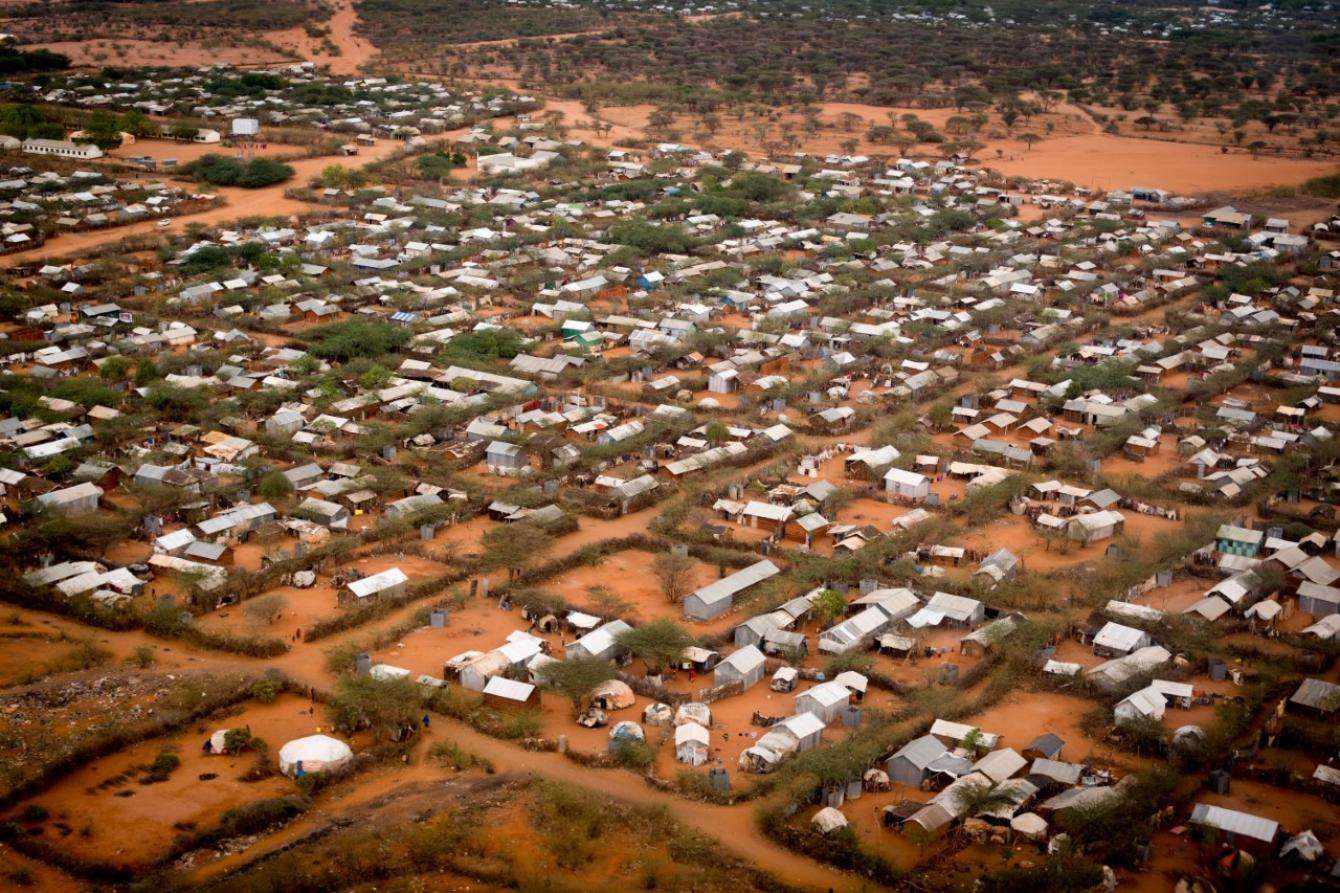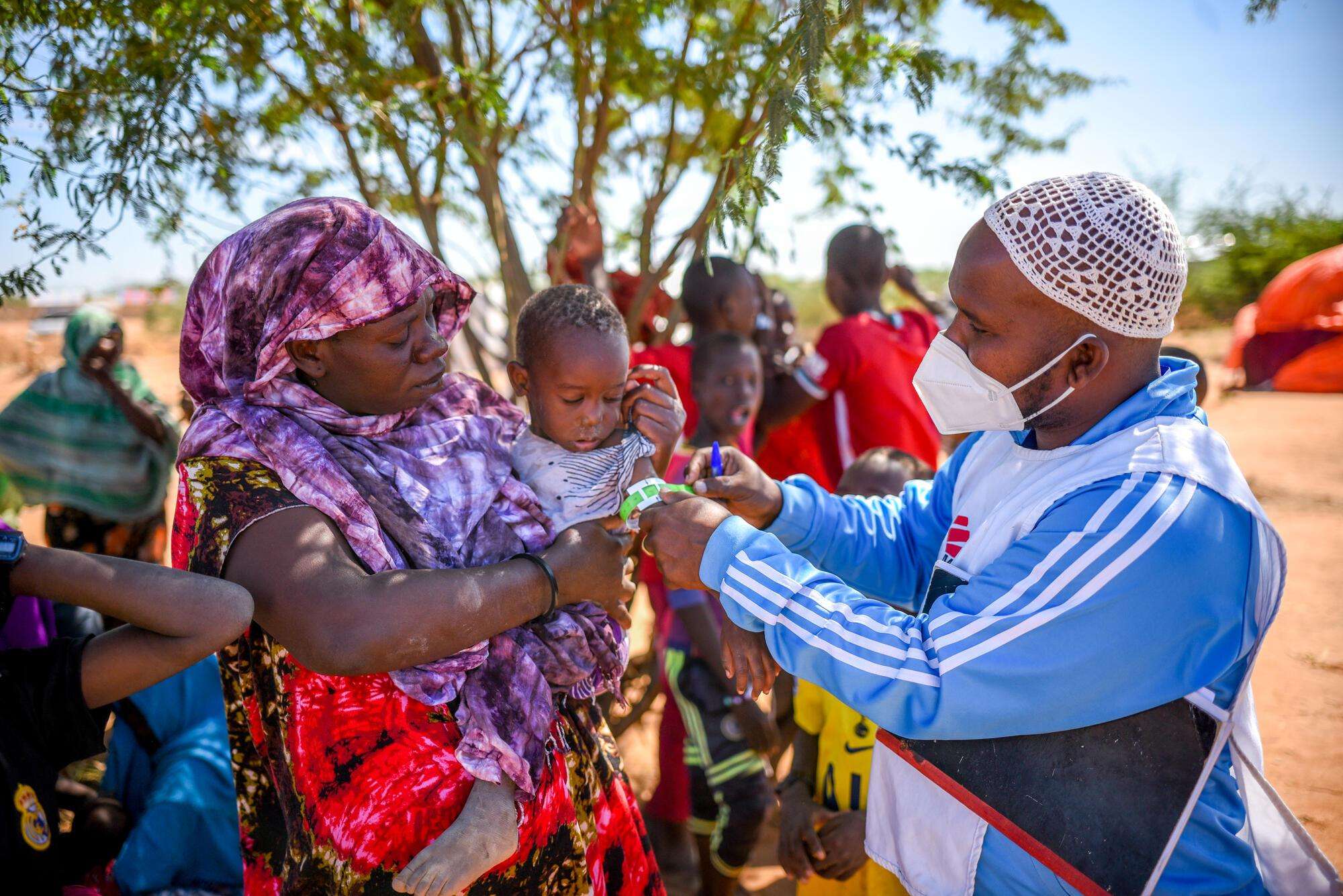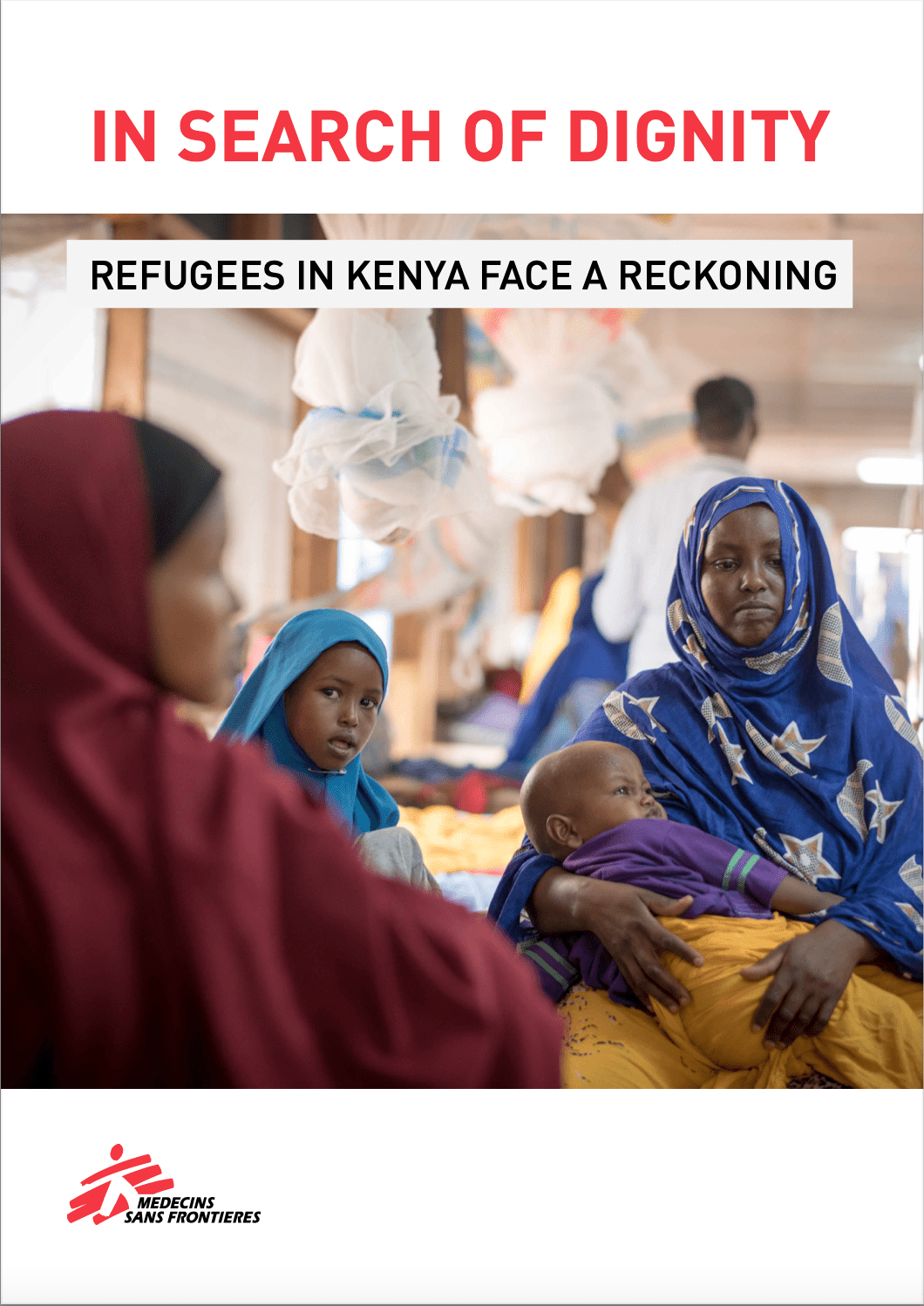NEW YORK/NAIROBI, DECEMBER 6, 2021—With the deadline to close Kenya’s Dadaab refugee camps just over six months away, urgency is mounting to find sustainable local integration and resettlement solutions for the refugees living there, warned the international medical humanitarian organization Doctors Without Borders/Médecins Sans Frontières (MSF) today. The Dadaab camps were established 30 years ago to accommodate Somalis fleeing their country’s civil war, though humanitarian assistance has waned following Kenya's announcement that it will close the camps in June 2022.
“The planned closure of the camps in June 2022 should be an opportunity to accelerate the process of finding lasting solutions for refugees,” said Dana Krause, MSF’s country director in Kenya. “At present, the mostly Somali refugees in Dadaab—many of whom have been trapped in the camps for three decades—face dwindling humanitarian assistance and limited options for leading safe and dignified lives.”
In a new report released today, MSF calls on Kenya and its international partners to live up to the commitments made in the 2018 Global Compact on Refugees by allowing Somali refugees to integrate into Kenyan society or to be resettled abroad instead of being forced to go back to Somalia. While Dadaab is no longer the largest refugee camp in the world, it is still home to approximately 232,903 refugees—many of whom were born in the camps and have known nothing else. Refugees in Dadaab are currently barred from working, traveling, or studying outside the camps, leaving them heavily dependent on humanitarian assistance.
“Kenya now has a simple choice: let refugees slide further into precariousness, or champion their rights by offering them the chance to study, work, and move freely,” Krause said. “Donor countries must share responsibility by increasing development assistance to Kenya so that it can ensure refugees have access to public services.”
The number of refugees returning voluntarily from Kenya to Somalia has fallen sharply over the past three years—from over 7,500 in 2018 to less than 200 in 2020, according to UNHCR—coinciding with rising violence, displacement, and drought within Somalia. Meanwhile, resettlement offers from rich countries have largely dried up, leaving refugees with little choice but to stay in Kenya where they currently have limited rights.

The plan to close the Dadaab camps has already caused humanitarian assistance to plummet, with the World Food Programme warning in September that it may be forced to stop distributing food rations altogether by the end of this year if they don’t secure more funding.
“What we fear most is that closing the camps without offering solutions to refugees could result in a humanitarian disaster,” said Jeroen Matthys, MSF’s project coordinator in Dagahaley, one of the three camps that make up Dadaab. “It is vital that refugees have uninterrupted access to humanitarian assistance throughout the camp closure process and until they have certainty about their future and can become self-reliant.”
Additionally, MSF is concerned about refugees’ access to medical care as many people in the camps live with chronic medical conditions and will need continued treatment, including for diseases like HIV/AIDS, diabetes, and tuberculosis. MSF currently treats 950 people with hypertension, 600 with diabetes, and 45 patients in the mental health program in Dagahaley camp alone.
MSF has provided health care to refugees in Dadaab for most of the camps’ existences, having set up activities in the camp for the first time in 1991. MSF’s current programs are focused in Dagahaley camp in Dadaab, providing primary and secondary health care to refugees and the host community. In 2020, MSF provided an average of 12,500 outpatient consultations and approximately 720 inpatient admissions every month in Dagahaley.


